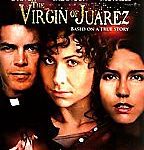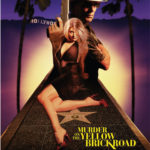by Marshall Fine, Los Angeles Times
Actors Liev Schreiber and Angus Macfadyen each take a crack at playing a Hollywood legend.
Every so often, Hollywood spins out the kind of dueling duals that seem more than coincidence: twin asteroid movies one year, a pair of Wyatt Earp pictures another, a matches set of Christopher Columbus films before that.
But not since John Belushi faced off with Joe Cocker have we had anything quite like the dueling portrayals of Orson Welles presented in HBO’s ‘RKO 281’ (with Liev Schrieber playing Welles as he makes ‘Citizen Kane’) and Tim Robbins’ ‘Cradle Will Rock’ (with Angus Macfadyen as Welles in his pre-‘Kane’ New York Theatre period).
Having previously played Richard Burton in ‘Liz: The Elizabeth Taylor Story’ (1995) and Peter Lawford in ‘The Rat Pack’ (1998), Macfadyen was well acquainted with the challenge of creating a character who already is firmly etched in the public’s consciousness. He harbored no trepidation about portraying the most celebrated and debated filmmaker of all time.
“I’m stubborn and stupid so I jumped with both feet,” he says. “The thing about playing people who existed, who were established, is that there is so much research to draw on. I love that search into history.”
Not that Macfadyen is about to start doing his Orson Welles impersonation at parties any time soon.
“You try to avoid doing an impression,” he says. Schreiber concurs, “If you spend too much time doing an impression, it keeps the audience at arm’s distance.”
Schreiber was less sanguine than Macfadyen about the idea of playing Welles; though he had auditioned for the role in ‘Cradle Will Rock’ (losing it to Macfadyen because he looked too old, though Macfadyen is actually older than Schreiber), he initially turned it down when it was offered for ‘RKO 281’.
“He’s one of those characters who’s kind of sacrosanct,” says Schreiber, currently rehearsing ‘Hamlet’ at the Public Theatre in New York. “They’re big shoes to fill. I got nervous because I didn’t want to somehow disrespect the memory of the character.”
Yet, while avoiding caricature, it was important to simulate the Welles voice, so deep and commanding: “The voice he used in film and radio was his, but it was also put on for film and radio,” MadFadyen says: “I found this priceless piece of tape where he is rehearsing ‘Tomorrow and tomorrow and tomorrow,’ and then he gets something wrong and his voice went up into this high, loud, anarchic rant as he berated himself. And it was a key to this quality of his Dionysian personality.”
In trying to create the character of Orson Welles, tyro film director, Schreiber focused on “how isolating it must have been, at the young age of 19, to be one of the most famous young men in America,” he says. “All he knew, all he had to live up to was this mantle of genius – at a great cost in emotional maturity and personal relationships. And all he really had to gauge reactions to what he was doing was the press, which is the most powerful mirroring one gets in one’s life.”
Macfadyen calls Welles a much tougher acting challenge than playing Burton or Lawford “because of the energy level. It was necessary for me to reach that level at all times. And to sustain it through 30 takes.
“With Welles, I found the root was his very powerful confidence, at times even a desire to dominate people. He was a bit of an alchemist. He caused a chemical reaction in the people around him. He caused things to happen.”
Like Macfadyen, Schreiber availed himself of the numerous biographies of Welles, as well as watching ‘Citizen Kane’ several times, sometimes with the express purpose of helping to re- create moments from that film in ‘RKO 281’ (which was the numerical production designation of ‘Citizen Kane’ at RKO pictures). He even looked at Vincent D’Onofrio’s performance in a cameo as Welles in Tim Burton’s ‘Ed Wood’. “For me, that’s just an actor thing – I love to see how other actors do things,” he says. “Some people are shocked that I would go see other ‘Hamlets’ before I played him. But it’s always interesting to see how other actors do a role.”
As a movie character, Welles has turned up before, usually in TV films. The late Paul Shenar portrayed him in 1975’s ‘The Night that Panicked America’, A TV movie that was more about the panic caused my Welles’ ‘War of the Worlds’ radio hoax than about Welles himself. Edward Edwards played him in little more than a walk-on in 1983’s ‘Rita Hayworth: The Love Goddess’. And D’Onofrio slipped in and out of ‘Ed Wood’.
But this is the first time Welles has been the focus of a film, feature or TV, and Robbins, who wrote and directed ‘Cradle Will Rock’, has already heard some grumbles from those who hold Welles’ memory sacred. The muttering about Macfadyen’s dynamic, showy, occasionally boozy interpretation of Welles in ‘Cradle Will Rock’, misses two points, Robbin’s says: that this isn’t a film about Welles, and that Welles was hardly a saint.
“Welles was a provocateur,” Robbins says, “and I think Angus nails that. In nailing it, he’s made some people feel uncomfortable with that Welles. But I thought it was consistent: How does this guy do what he does? How does he have the brass at that age to do what he did?”
For all the research the actors did on his life and all of the film available of his performances, Welles remained a fascinatingly enigmatic figure: “I read five biographies and got five different accounts of the same thing,” Schreiber says, “which in and of itself is very telling.”
“His work was all about studying the heart of darkness in man,” Macfadyen suggests. “So he did a ‘Macbeth’ with voodoo – and told people he believed he was possessed by the devil when he played Faust. In some ways he was making himself the study of his own films.”
And what would they say to him, if the late Welles were still alive?
Cracks Schreiber, “I’d say, ‘Can I be in your next movie?'”





